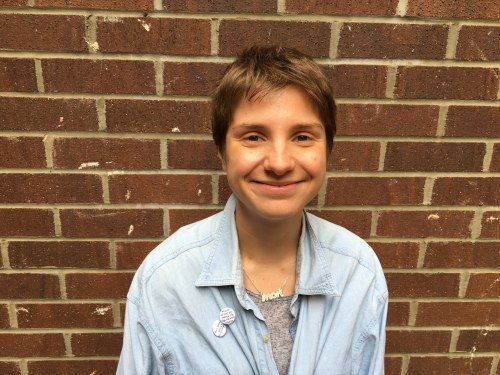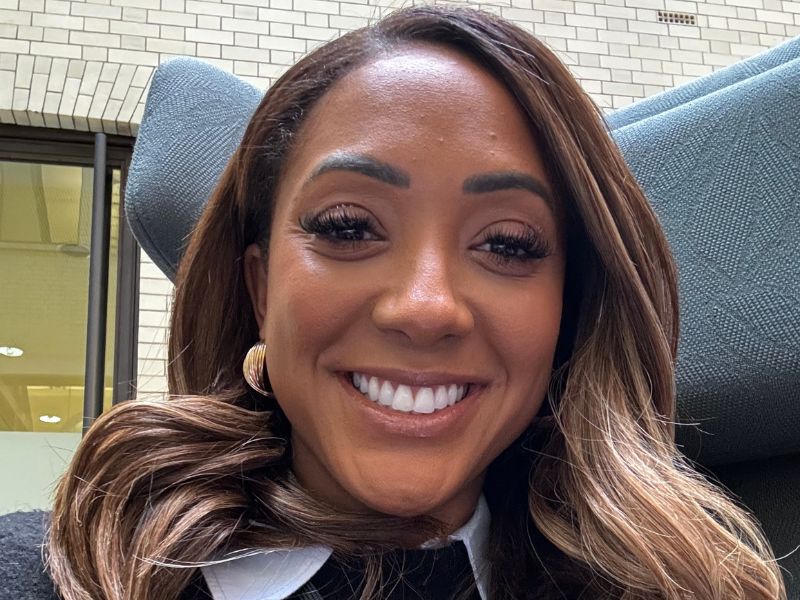Monica Karpinski is the founder of The Femedic, a new website tackling the taboos around women’s health.
Tell us a bit about yourself, background and your current role
I was born and raised in Melbourne, Australia and moved over to London in 2013. At school I did mostly sciences but did a BA in media communications, at uni I flirted a bit with journalism and did some arts writing but wasn’t confident either would lead to solid employment. At the time in Melbourne I felt a keen sense that the world of print media was becoming tighter and much more difficult to break into and excel at: a big news company I interned at had massive job cuts and my favourite paper was losing credibility. I was a bit disheartened and didn’t like the idea of crawling up a narrow ladder while being restricted in the type of content I could create — romantically I still adore print media but at the time as a fresh grad felt I’d have better chances in digital. After graduating I went travelling for six months and then decided to move to London. I figured it was the best and most exciting place to start a career in media, especially if digital was going to be my entry point.
My current role is Founder and Editor of The Femedic, which is an educational website that focuses on taboos surrounding women’s health. I’m also the Director and Head of Content at Curated, a digital marketing agency. The Femedic is the first website of Curated’s publishing arm.
Did you ever sit down and plan your career?
To an extent but I never had anything as formal as a five-year plan. When I started off doing freelance and volunteer bits during uni my plan was to figure out what I liked by process of elimination: I tried some radio, some TV, and news writing, arts writing, etc. Because I was still at uni I considered this low risk, and by the time I finished I knew I wanted to go into the direction of writing.
Once I actually started working full-time as a writer I realised that there was this whole world of digital strategy I hadn’t even considered.
I realised that being able to write was one thing, but online, if you couldn’t get people to read what you’d written, to understand what they wanted to read, or to make yourself stand out, what was the point? So being exposed to that in practice definitely made me change direction — I think being agile like that is really important. From there I just made smaller goals to work towards, for example moving up from a writer to an editor or to acquire a particular new skill by a certain time.
Have you faced any challenges along the way? How did you deal with them?
Of course! The biggest challenge I have ever dealt with was starting up a stable career after moving to London on my own from Melbourne, Australia. I had recently graduated, sort-of knew a few people but didn’t really have any friends, and had no clue how this city works. The first six months were really tough and definitely shook up my confidence, but I knew I couldn’t go home without having fully experienced London, otherwise what was the point in coming?
There’s no romantic or clever way I dealt with it, I just literally kept on going. I kept working and kept looking for other opportunities and ways I could settle into London life. Things got better gradually, and as soon as I started to become happier the feeling of achievement was brilliant. I would say it took me around a year to start really loving being in London.
Do you have a typical workday? How does you start your day and how does it end?
Not really, but there are things I tend to do more than others. I always start my working day with a tea or coffee — this sounds basic but for me kind of helps to flip that mental switch to help get me stuck into what I’m doing. I also meet with my team every morning and we each briefly go through what we’ll be working on that day.
Beyond that my day is a mix of meetings, doing strategy bits, research, managing my team, coming up with ideas, creative, and editorial. It’s usually pretty ad-hoc, I write my to-do list for the day only the day before.
How do you feel about mentoring? Have you ever had a mentor or do you mentor anyone?
I think mentoring can be a brilliant and positive thing, especially at earlier stages of your career. The tricky part is finding someone who will really level with you and impartially help you weigh up decisions and get the best out of yourself. But while I think having a mentor can be great I don’t think it’s something you necessarily need — you can still succeed and achieve your goals without a formal mentor or even the perfect mentor. Support networks like friends, families, or a partner can be just as, if not more, important in helping you achieve what you want.
If you could change one thing for women in the workplace, what would it be?
Removing the attitudes and prejudices that define different standards of success for men and women. ‘Success’ tends to be described in traits typically gendered male — powerful, outspoken, demanding of respect, influential, self-assured, confident — and when women exhibit these traits are often dismissed as being shrill, emotional, bossy, or the ultimate faux-pas: unlikeable! The very fact that success is defined in those narrow terms in the first place is also a problem. Why are soft skills such as communication and understanding dismissed being feminine (read: unsuitable for the workplace) rather than celebrated as legitimate leadership techniques?
What has been your biggest achievement to date?
Setting up The Femedic!
Why did you choose to focus on women’s health?
Health is such a personal and essential part of our sense of self and confidence. If we are experiencing something happening inside our body that is causing us discomfort or pain, but we are told is shameful and embarrassing, it can make us feel broken and alone. The taboos surrounding women’s health are a silencing tool that prevents women feeling in control and seeking help.
From previous work in the digital healthcare space I knew that there was a clear and gaping knowledge gap where it comes to women’s health — women were asking questions that weren’t being answered in the depth deserved. Plus, from personal experience, I know how demoralising and disappointing it can be to search for information about particularly taboo topics — contraception, sexual health, etc. So I decided to create something to fill this gap.
What are you hoping to achieve in the future?
I want to create a successful resource and brand that women trust and actually brings them information that can help them. In the long run hopefully The Femedic can be involved in creating educational resources beyond our website, so working with workplaces or policymakers for example. We are hoping to host regular discussion events to create offline experiences where women can









